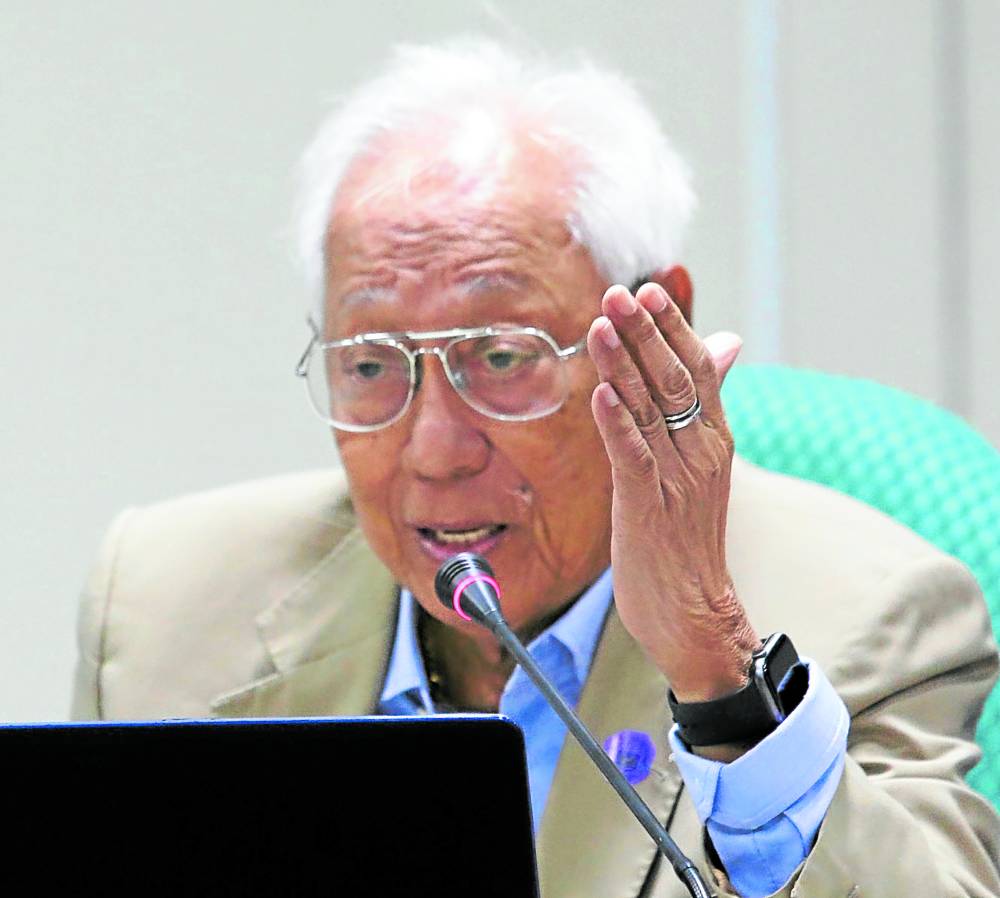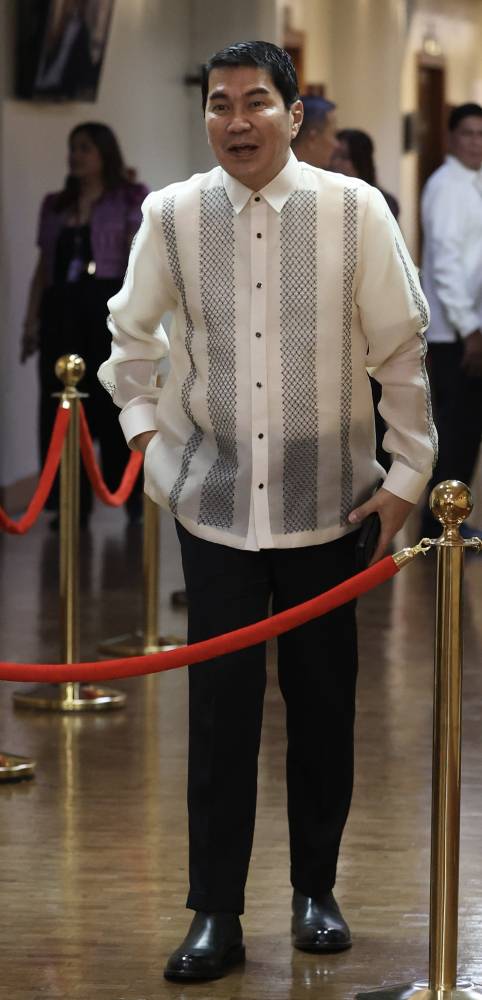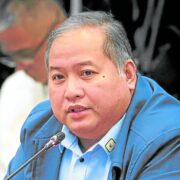Still no antidynasty law? 1 of 2 Tulfos in Senate blames ‘vague’ provision

Who’s to blame for the lack of an antipolitical dynasty law mandated by the 1987 Constitution?
Sen. Erwin Tulfo said the framers of the Charter should have already specified the limitations for candidates, noting that bills addressing political dynasties in the country face slim chances of being passed into law since many lawmakers themselves are relatives.
During Tuesday’s hearing of the Senate committee on electoral reforms and people’s participation, Tulfo took up with former Commission on Elections Chair Christian Monsod, one of the the framers of the 1987 Constitution, what the senator called its “vague” definition of a political dynasty.
“My question is, why didn’t the framers think of it? Did you at one point discuss that it should be clearly laid out? … Why wasn’t it done? Now, we are having a hard time applying this law, sir,” Tulfo said.
He noted that many lawmakers are related to one another, benefiting from the absence of such a law, hence Congress finds it difficult to pass antidynasty measures.
“To be honest, I will tell you it is difficult to pass [an antipolitical dynasty bill] because how can we pass that, make a law, if many members of Congress are relatives? That is the problem,” the senator said.

Responsibility of Congress
Monsod, however, said Congress owes it to the people to pass such piece of legislation.
“We trusted when we were writing the Constitution that Congress would carry out this mission and duty on their part, and that Congress will have the capability and courage to change it as our democracy changes, as we improve,” he said during the hearing.
Monsod explained that the framers left it to Congress to define political dynasty because they thought that “by including the mandate in the Declaration of Principles and State Policies, the Congress would enact an implementing law.”
“We were trusting Congress to do its job and that the extent and gravity of the problem may change over time. Today, we may need to extend beyond fourth degree, to first cousins. In later years, after we have gained political maturity—and I’m sorry to say, we have not gained political maturity—maybe the problem may be limited only to two degrees or one degree,” he said.
“We left that to the wisdom of the Congress, who are the representatives of the people. Unfortunately, that has not happened,” Monsod added.
“The problem is that the heart of the Constitution is social justice and it is not being implemented by Congress, and there are so many laws like… [the] party list law which must be amended. Why? There must be antidynasty provision there,” he said.
Constitutional mandate
“[T]hose three amendments on the party law, Congress has not passed it … I can go on. I can tell you how much Congress has not implemented the provisions of the Constitution on health and education … I can go on the list, Your Honor. This is just one of them,” Monsod added.
Sen. Risa Hontiveros, the deputy minority leader, who presided over the hearing, stressed the need to craft a clear definition of political dynasty and set the limitations on family members running for public office.
Asked up to what degree of consanguinity should be prohibited, Commission on Elections (Comelec) Chair George Garcia said it is also up to Congress to set that limit.
‘Family of emerging politicians’
But according to Garcia, the Comelec is of the view that the second degree of consanguinity is the most practical and most reasonable since it would apply to a politician’s spouse, children, siblings and grandparents.
In his opening statement at the hearing, Tulfo acknowledged that he himself comes from a “family of emerging politicians,” referring to his brother, Raffy Tulfo, who is also an incumbent senator.
Another brother of his, journalist Ben Tulfo, also ran for senator in the midterm elections last May.
“Let me be candid to everyone here. I myself come from a family of emerging politicians,” the senator said. “That is precisely why I say this issue is not about attacking families but also strengthening the institutions and giving every Filipino a fair chance of leadership.”
Before being elected senator, Tulfo earlier said he would resign from the Senate should an antipolitical dynasty bill be passed into law.
The Makabayan bloc at the House of Representatives recently filed a bill calling for a ban on political dynasties.
Similar measures have been proposed by progressive lawmakers in the past but never gained traction in Congress.
Aside from Tulfo, Senators Robin Padilla, Ping Lacson and Kiko Pangilinan have also filed bills that set safeguards against the rise of political dynasties.

















